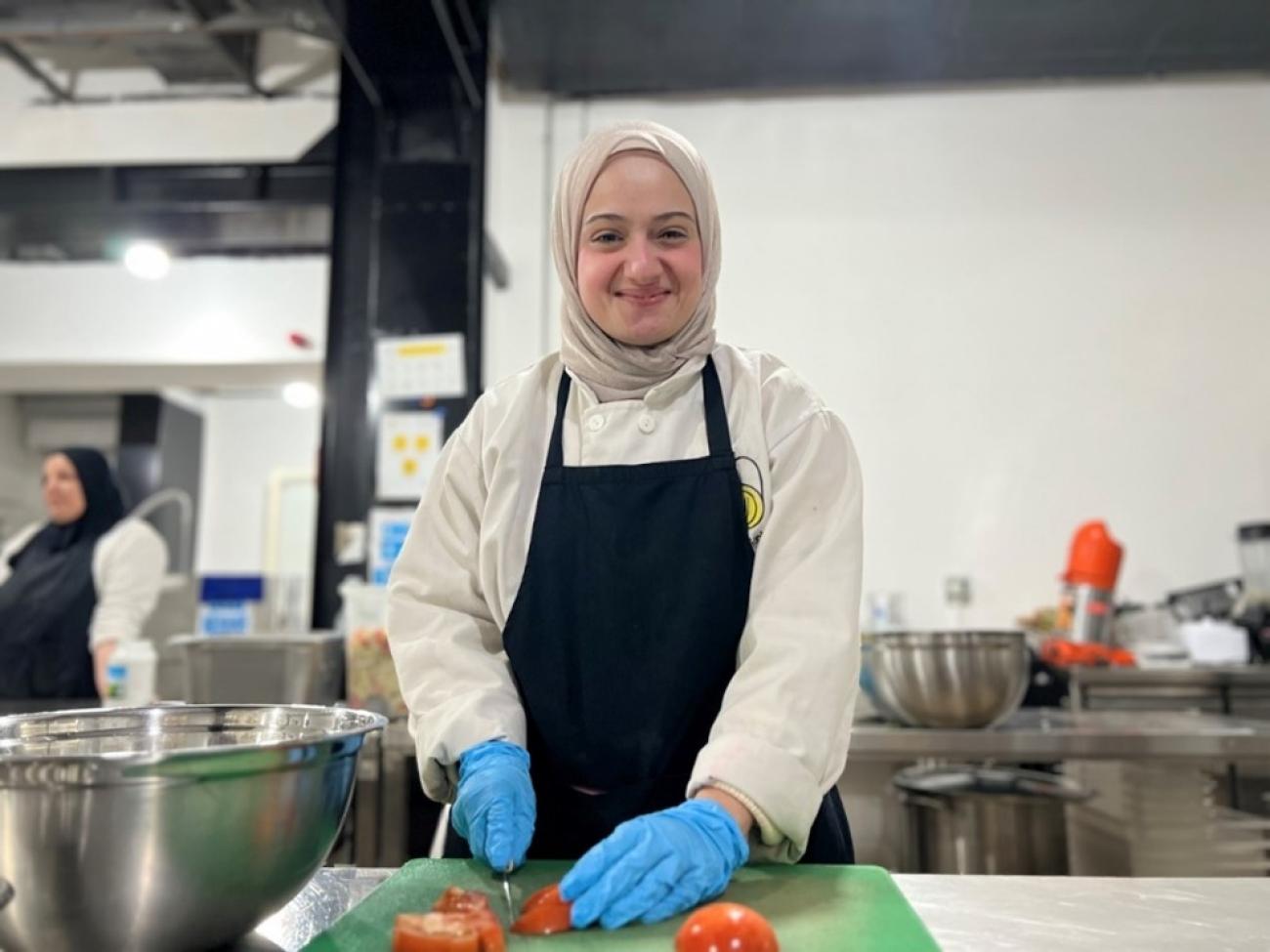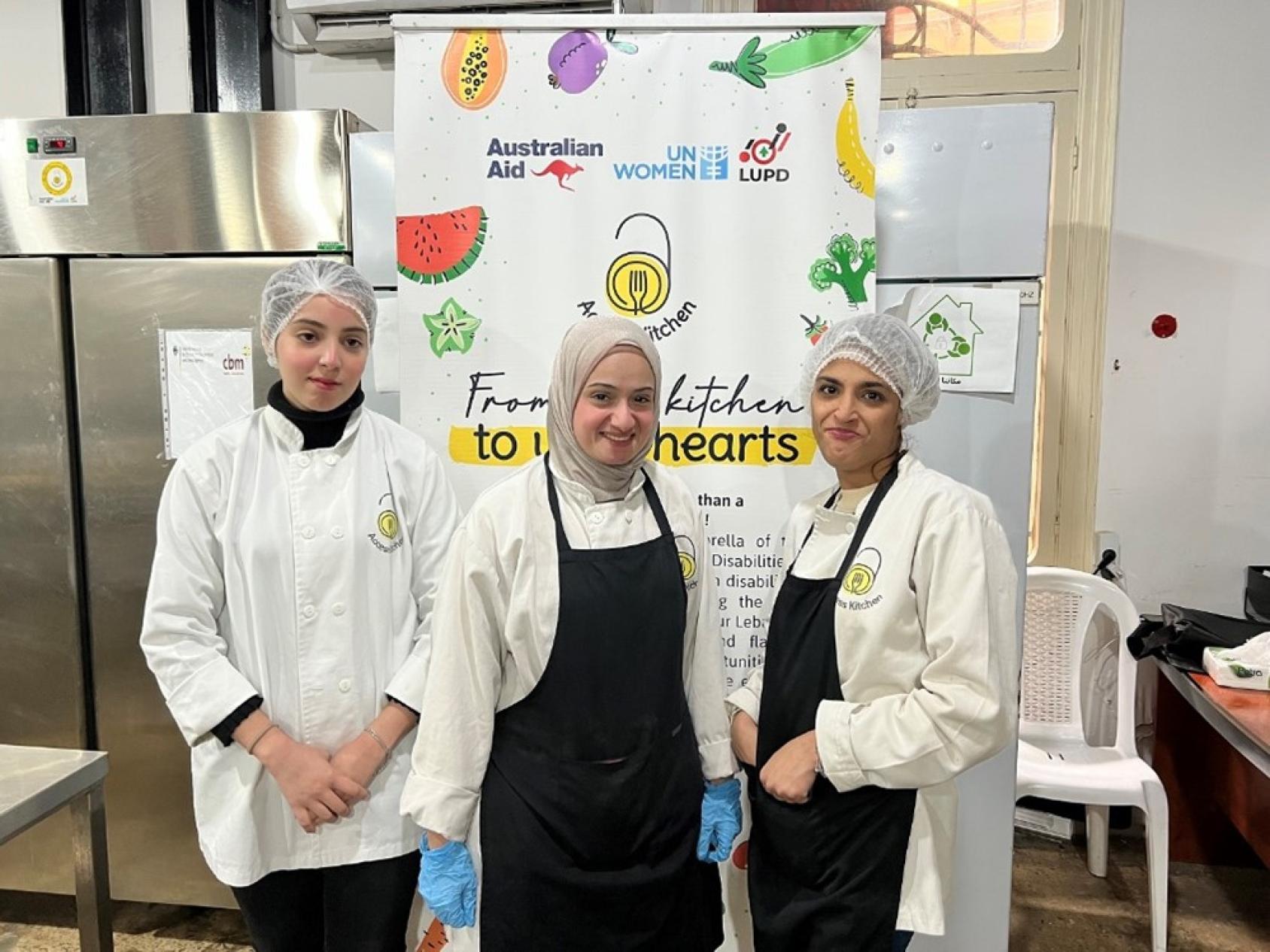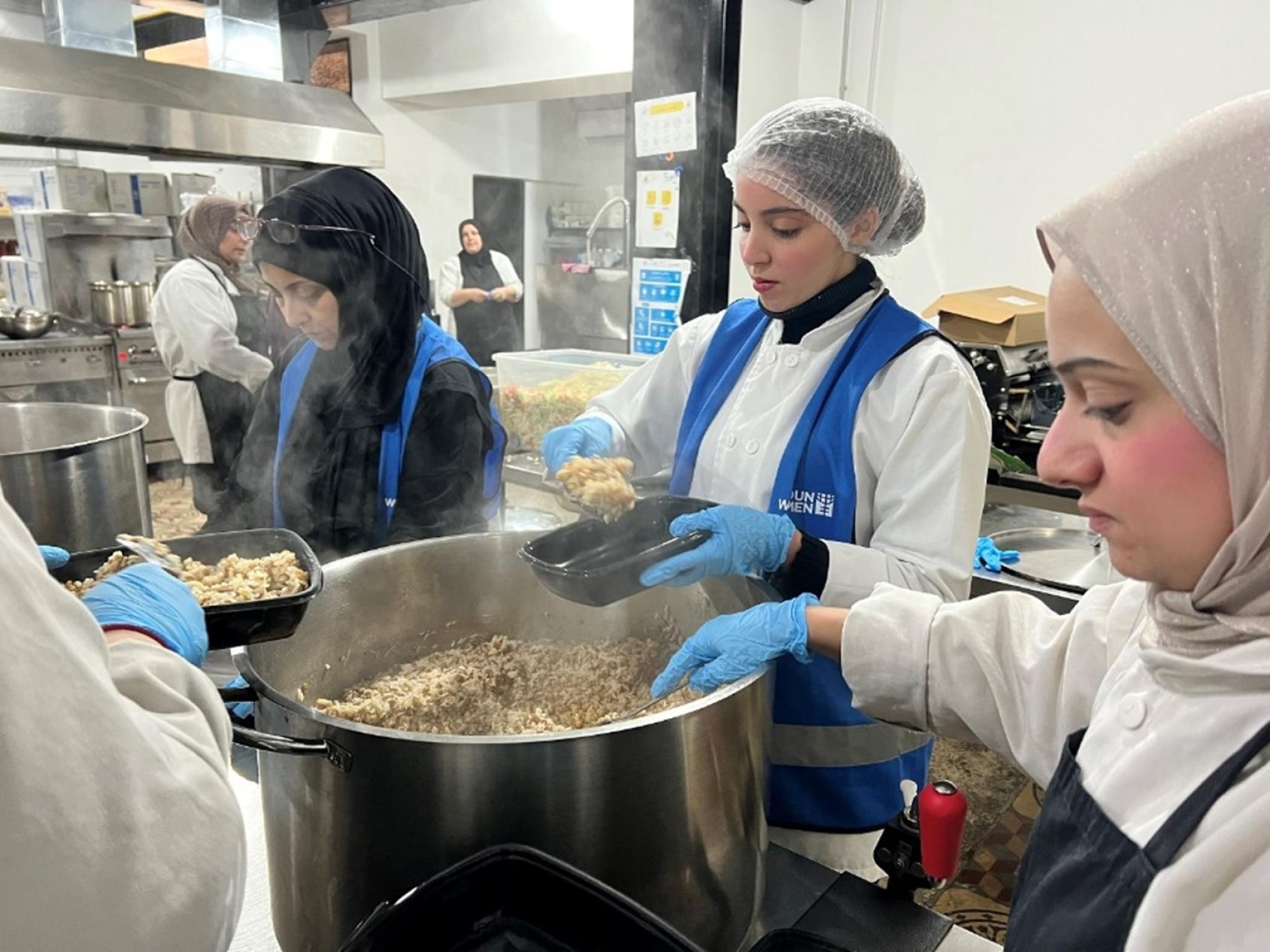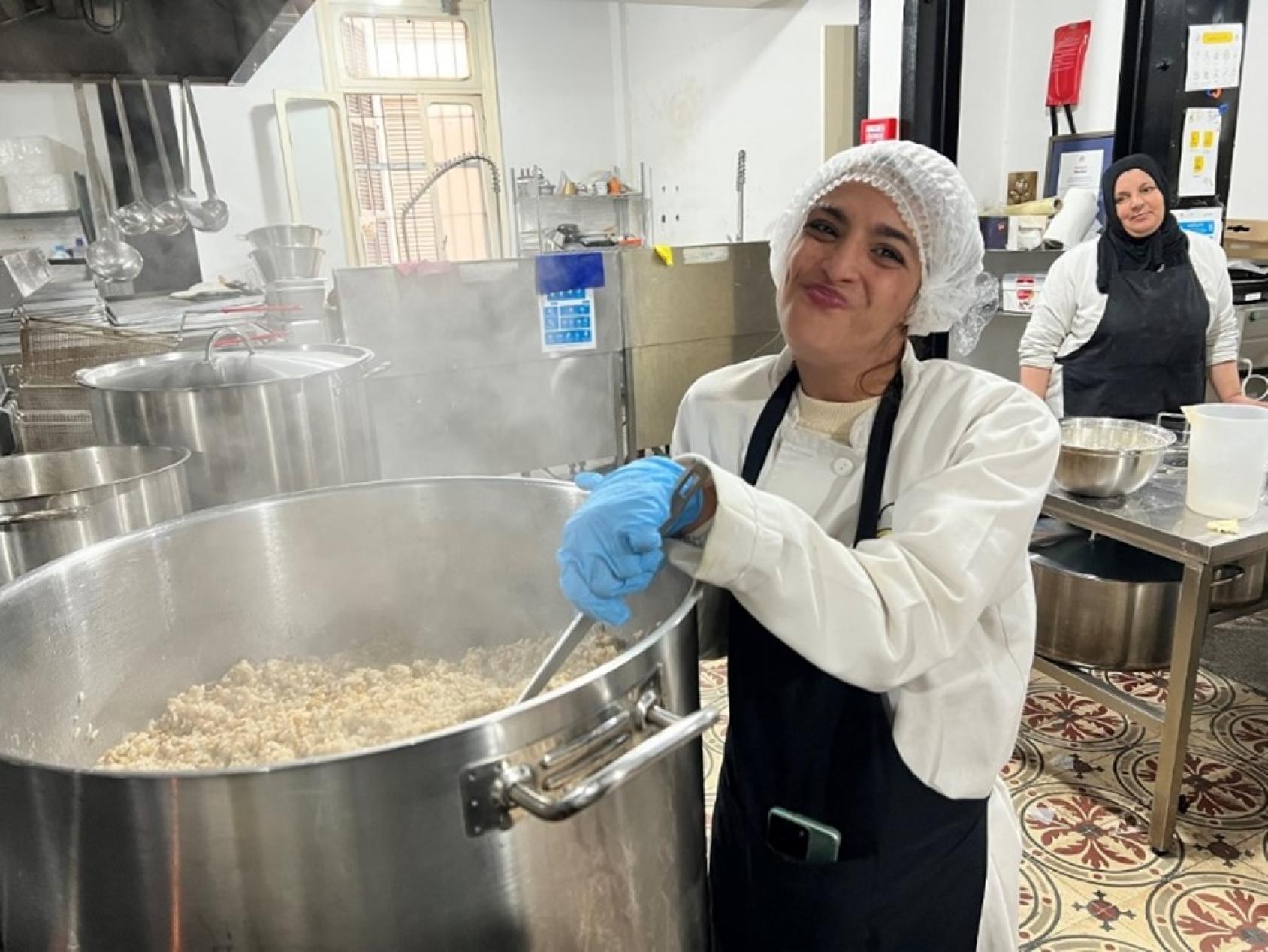Women-Led Kitchen Becomes a Lifeline in Crisis-hit Lebanon

A delectable aroma greets visitors when they enter “Access Kitchen” in Beirut, Lebanon. Launched in 2022 by UN Women in collaboration with the Lebanese Union for Persons with Physical Disabilities, this women-led community kitchen has become a beacon of hope for women with disabilities, who are using their skills, leadership, and determination to support their communities and uplift people in need amid unprecedented challenges facing the country.
A Kitchen That Transforms Lives
Access Kitchen, designed to accommodate the diverse needs of persons with disabilities, trains women to prepare and distribute hot meals to underserved families. The initiative tackles Lebanon’s food insecurity, caused by a socio-economic crisis and exacerbated by conflict, while promoting social inclusion, gender equality, and economic empowerment of women with disabilities.

Before the conflict escalated between Israel and Hezbollah in September 2024, Access Kitchen employed 40 women with disabilities to produce over 1,000 hot meals daily for vulnerable families living in Beirut. Since the war's escalation in September 2024, the kitchen has become a lifeline for displaced families and persons with disabilities, producing and distributing over 9,000 hot meals to those seeking refuge in collective shelters. The chefs work in shifts, ensuring efficient collaboration while staying flexible.
Funded by the Government of Australia and previously by the Government of Japan, Access Kitchen scaled up its operations in October 2024, reaching even more populations in need. By equipping women with essential skills, this cash-for-work initiative is fostering long-term resilience through practical training and livelihood support, including emergency cash assistance and basic resources for persons with disabilities. The World Food Programme (WFP) has also supported with in-kind contributions by providing food ingredients to produce hot meals.
Voices of Leadership and Hope
The women of Access Kitchen are more than chefs; they are leaders, advocates, and changemakers. Each one of them brings a unique perspective and drive to build a more inclusive society where every person counts, and every need is heard.
Riwa Hattab, 21, reflects on her journey in a kitchen that has become a vital part of her life.
“As a woman with a disability, I feel a strong sense of responsibility towards my community. The war may have made us more vulnerable, but it also showed us the power of solidarity,” she shares.
Highlighting how personal challenges can inspire determination and drive positive change, Riwa adds, “My disability didn’t hold me back from delivering assistance; on the contrary, it fueled my resolve and determination. We can use our experiences to communicate, adapt, and promote inclusivity.”

Hanan Bathatha, 31, highlights the great sense of fulfillment she found in serving others.
“Helping my community makes me feel I have a valuable role in society. It’s time to dispel the misconception that women with disabilities are not part of the solution. Let’s unite and show the world our potential to make significant contributions.”
For Samira Yamout, 26, the sense of pride and strength she gained as a leader was immense.
“Delivering hot meals to displaced families fills me with pride. I urge all women with disabilities not to succumb to vulnerability but to find strength within. By being leaders and supporting each other, together, we can show the world we are not just survivors but also leaders in times of crisis.”

A Call for Inclusion and Diversity
By equipping women with disabilities with the tools and opportunities to lead, this initiative demonstrates that diversity is not a limitation but a powerful strength. Over the next year, UN Women and the Lebanese Union plan to expand the initiative to include 20 more women in Bekaa and Beirut, reaching around 600 people and providing unconditional cash assistance to 200 persons with disabilities, with women as a priority.
For Riwa, Samira, and Hanan, this opportunity has transformed them into community leaders, amplifying the voices of others with disabilities and proving that inclusion can drive meaningful change. The success of ‘Access Kitchen’ is a testament to what is possible when we prioritize equal representation, opportunity and dignity. Their stories remind us that a truly inclusive world—where people of all abilities can thrive—is within reach, if we choose to build it together.
For more information about the UN's work in Lebanon, visit lebanon.un.org. Discover the UN’s vision and unwavering commitment to the inclusion of persons with disabilities here. #InclusionMatters


























